'Miner's Daughter'
Political Critique
Warsaw, 2025
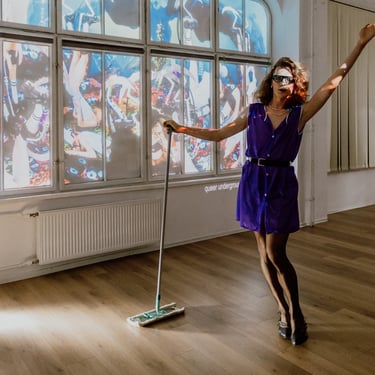
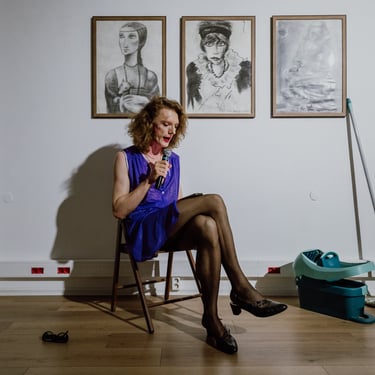
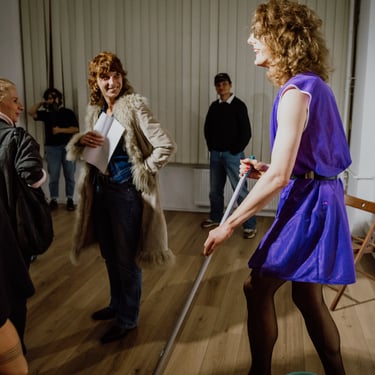
Daughter of a Miner is a performance piece that was part of an event organized by the left-wing activist group Krytyka Polityczna in Warsaw. It revisits my teenage years growing up in a working-class family and discovering art in an environment with no artistic or intellectual traditions. In the performance, I reflect on how I started taking drawing lessons and copying famous European artworks to understand art history. Now, twenty years later, I reinterpret that gesture through a class perspective, exploring the challenges of approaching art from a working-class background. As part of the performance, I read a story about my adolescence alongside those old drawings and perform as a cleaner, paying homage to my family's working-class history.
'The Iron Lipstick'
Survival Kit Festival
Latvian Center For Contemporary Art
Riga, 2025
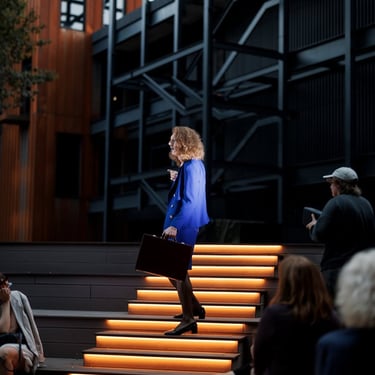
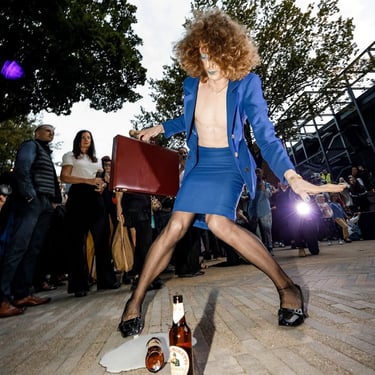
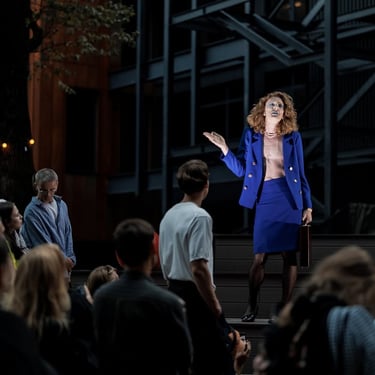
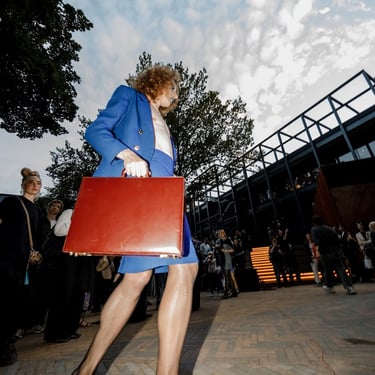
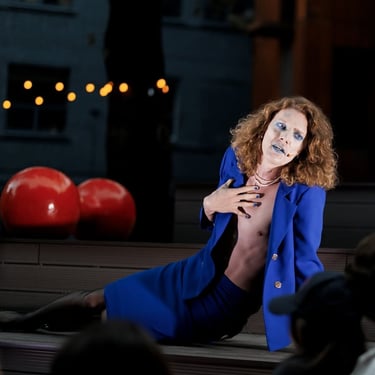
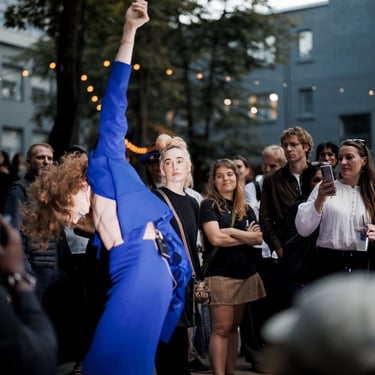






The Iron Lipstick is a performance combining spoken word and choreography, in which Margaret Thatcher is embodied and reimagined as a queer specter, despite her anti-gay politics. Inspired by Damian Barr’s memoir Maggie and Me, a queer coming-of-age story set in 1980s Scotland, the work reanimates Thatcher’s iconic speeches to create a political fiction that calls for the abolition of gender in order to imagine a genderless society. Thatcher becomes a costume to be destabilized, multiplied, and re-performed: domination is recast as drag, and power is dismantled through performance. By queering a figure synonymous with oppression, the piece stages a paradoxical intimacy with history’s demons, exposing how they resurface today while opening the possibility of taming and transforming them. The performance incorporates a replica of Thatcher’s costume, recently displayed at a Christie’s auction.
'The Fantastic Life of Baroness Münchausen'
Contexts Festival of Ephemeral Art
Sokolowsko, 2025
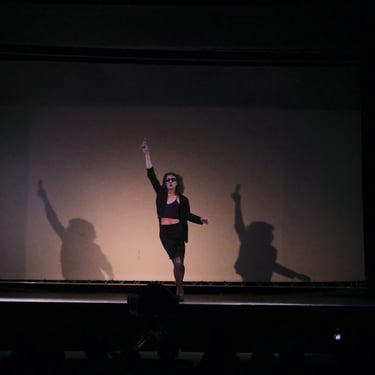
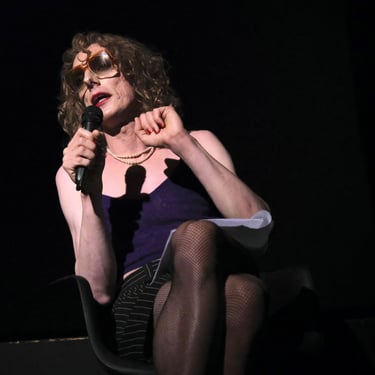
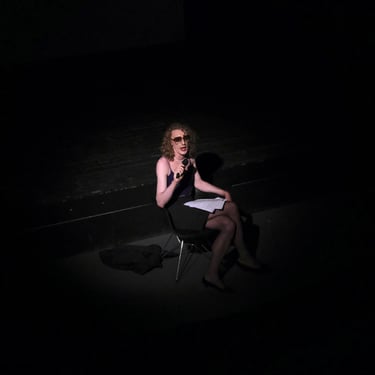
The performance is based on a month-long voice diary in which the artist documented a sudden turn toward self-care after years of excess. Through short, intimate recordings, she confronts addiction and reflects on healing outside institutional therapy. Instead of endorsing conventional wellness culture, the work reclaims value from a period marked by psychoactive substances, while humorously portraying the art world, literature, theatre, film, and her media presence from a sober perspective. Its title references Baron Münchhausen, whose impossible self-rescue mirrors the artist’s attempt to pull herself out of addiction through storytelling. Ultimately, the piece is about recovery without erasure, transforming past excess into material for growth rather than shame.
'Woman of... Black Coal'
Museum of Modern Art in Warsaw
Warsaw, 2025
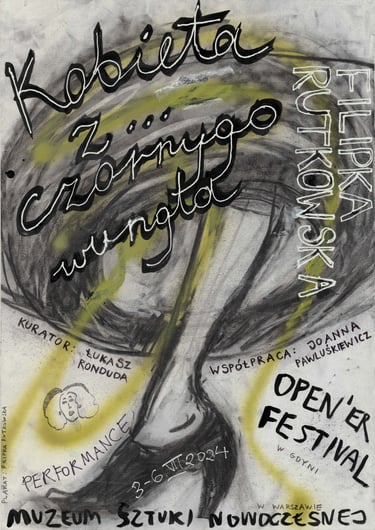

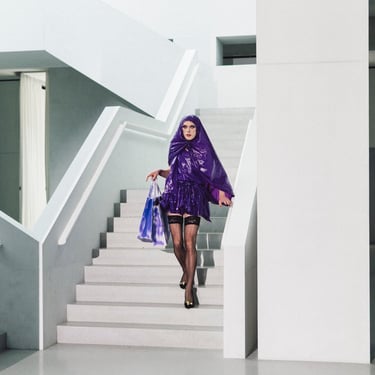
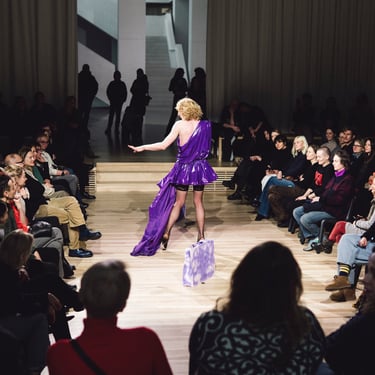
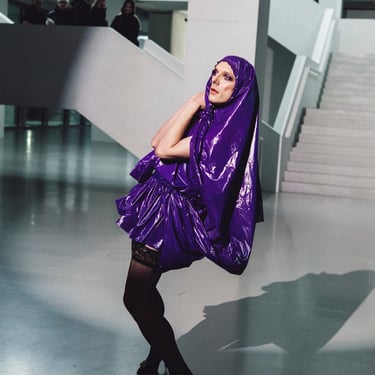
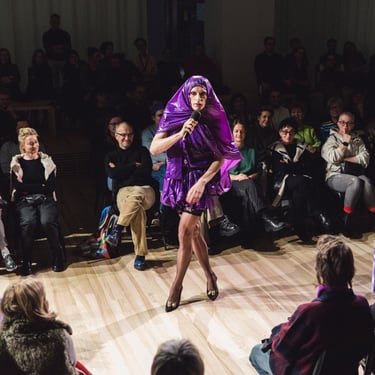
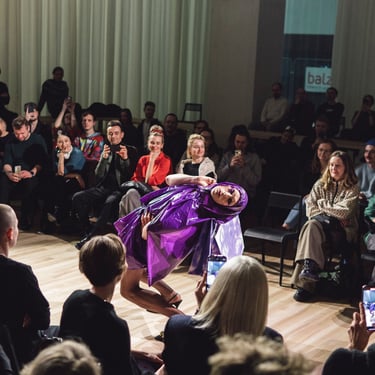
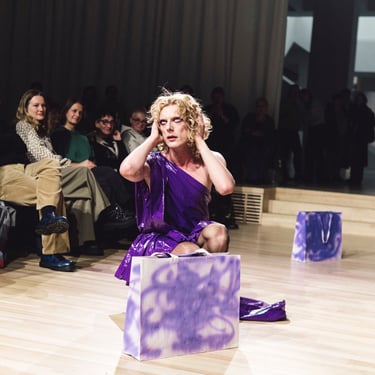
The performance is told from the perspective of a queer woman who, through sexuality, reveals strategies for overcoming external barriers and limitations. Staged as stand-up comedy, it fuses biographical fragments—miners, the art world, Silesian dialect, non-binary speech, and Warsaw’s party life—into a chaotic yet liberating narrative. Drawing on the artist’s upbringing in Katowice, a culturally hybrid region shaped by Polish and German influences, the work foregrounds the Silesian dialect, which she relearns and uses throughout the show. By doing so, she confronts her working-class roots and regional minority status, merging them with queer identity and sexual minority language. Ultimately, the performance transforms class, regional, and sexual shame into a turbulent spectacle of resilience and emancipation.
'Memoirs Of A Time Of Immaturity'
Nube Baja
Buenos Aires, 2024
as part of PAR / Casa Belgrado residence
video
with Jonathan Reincholz
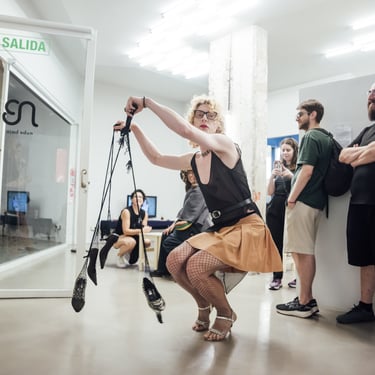
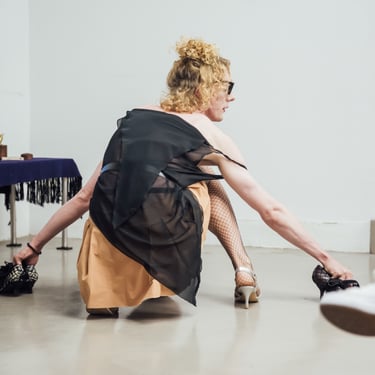
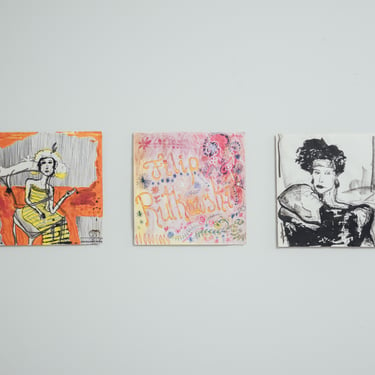

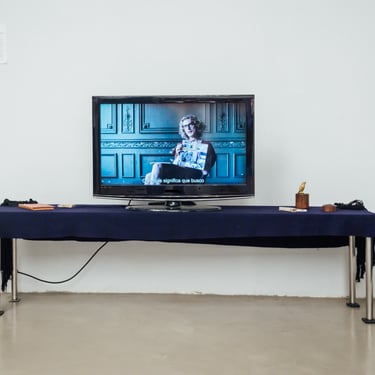
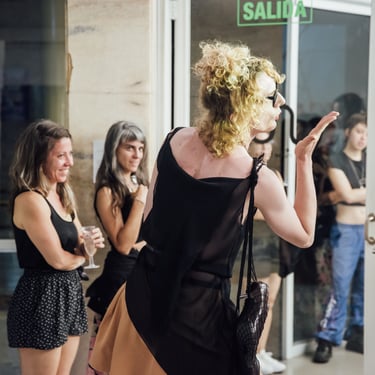
The performance was inspired by the work of renown Polish writer Witold Gombrowicz and developed during my residency in Buenos Aires. It was based on research at the Polish Library in Buenos Aires, a library co-founded by Gombrowicz himself in the 1930s when he was an immigrant in Argentina. Gombrowicz, who lived in Buenos Aires between 1939 and 1963, developed a theory of form addressing how rigid social structures shape individuals. He also reflected on his own same-sex desire in his diaries with a candor that anticipates contemporary queer theory.
The project was supported by Adam Mickieiwcz Institute in Warsaw.
'Cat On A Hot Wooden Raft'
Performance Platform Festival
Galeria Labirynt
Lublin, 2024
video documentation
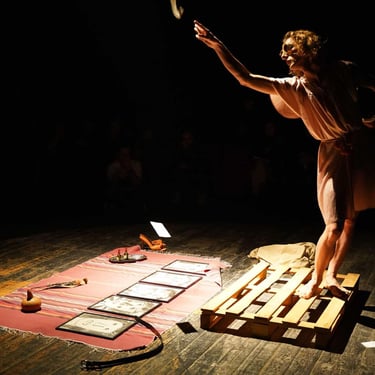
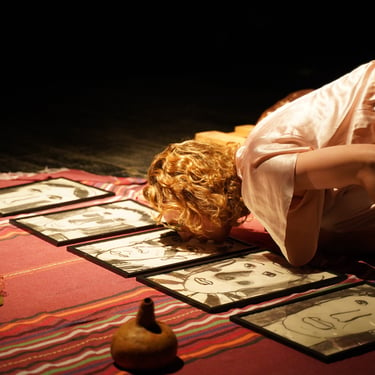
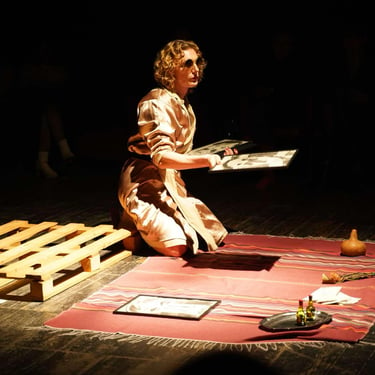
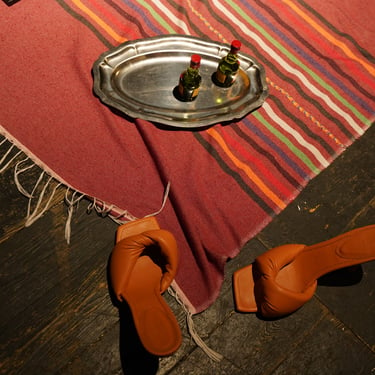
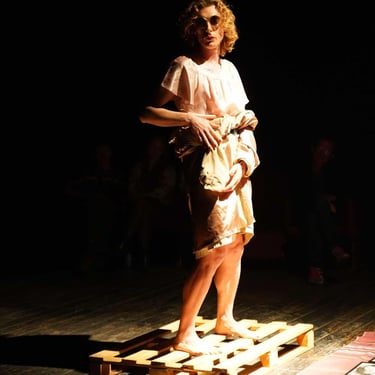
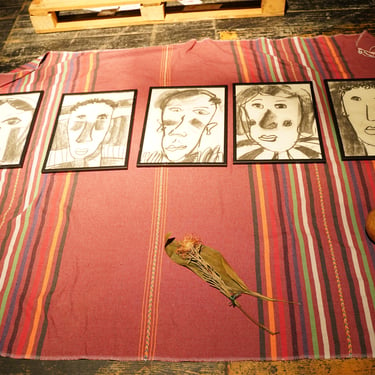
The performance reflects on the artist’s intimate encounters with migrants from the Middle East and North Africa who have recently arrived in Europe. Using sexuality as a source of knowledge, the work forges connections between LGBTQ+ experiences of vulnerability and those of migrant communities. Flea market objects tied to Europe’s colonial past are juxtaposed with charcoal portraits of anonymous lovers whose legal precarity prevents disclosure of their identities. The piece unfolds to the soundtrack of Fellini’s Casanova, where free love once transcended social and national borders. In contrast, the performance highlights how today’s migration crisis reveals the rigidity of Europe’s boundaries.
'Different Figures In The Same Character'
Foksal Gallery Foundation
Hotel Warszawa Art Fair
Warsaw, 2023
(with Agata Słowak)
video documentation
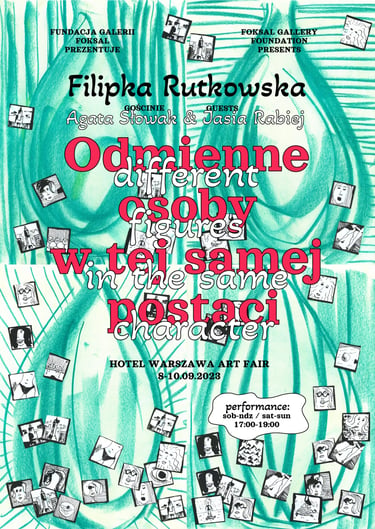

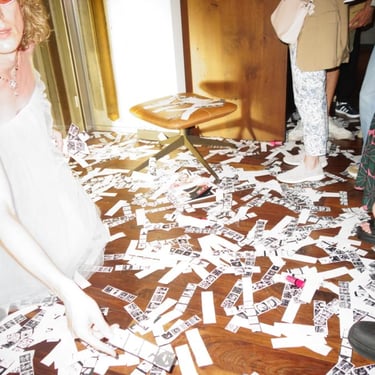
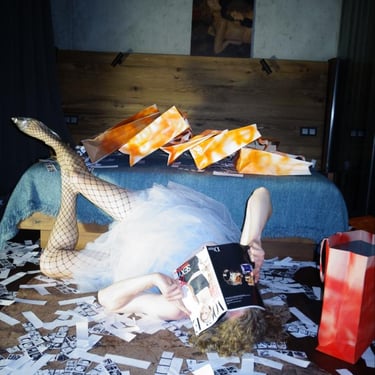
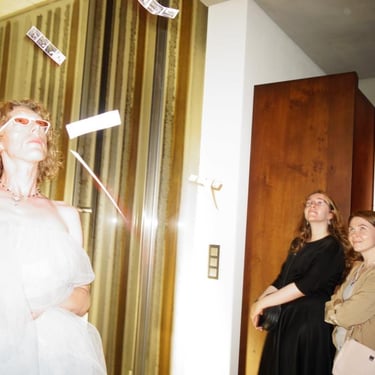
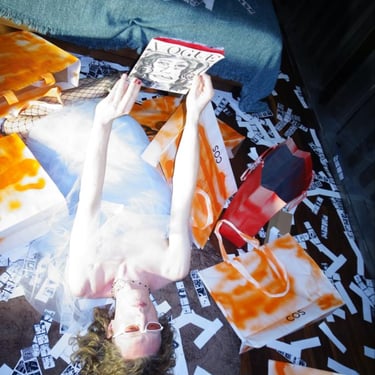
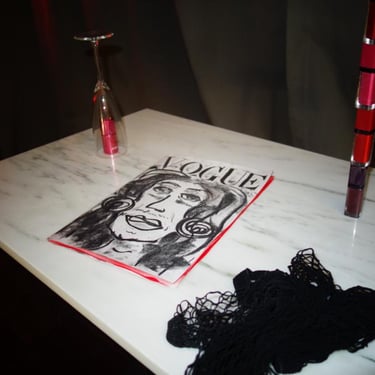
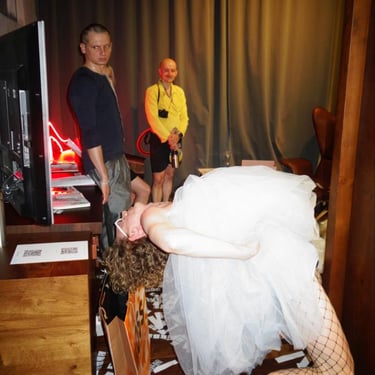
This durational performance, staged in a hotel room, explored the fluidity of queerness by juxtaposing the artist’s identity with the fading pop culture figure of Carrie Bradshaw. At the time, the artist was writing a Vogue Poland column titled Filipka in the Big City, an attempt to insert a queer voice into a mainstream women’s magazine—a gesture also referenced through a self-made version of Vogue, reflections on a Miu Miu film, and New York Fashion Week. The performance included spray-painted shopping bags critiquing the commercialization of femininity and hand-drawn photocopies of photo booth images, evoking fictional memories. Agata Słowak contributed a portrait depicting the artist as a fluid sexual identity, embodying both male and female bodies. Transforming the elegant Hotel Warszawa into a queer reinterpretation of Bradshaw’s writing space, the performance deconstructed rigid models of femininity and scattered its canon into fragments.
'Woman Hiding Behind A Woman'
Museum of Modern Art in Warsaw
Warsaw, 2023
video: Nicolás Villegas H. Łukasz Ronduda
watch here
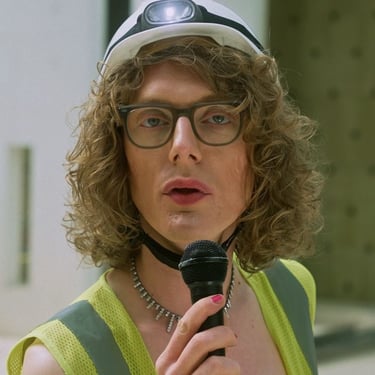
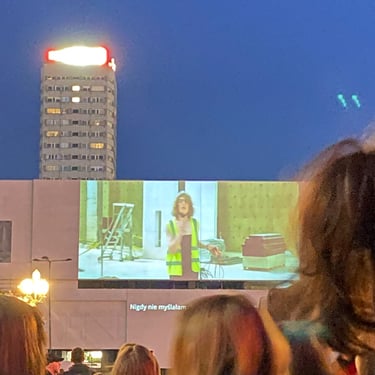
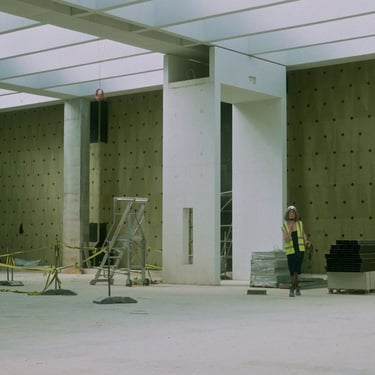
This site-specific performance was recorded inside the new Museum of Modern Art in Warsaw, designed by Thomas Pfeiffer, while the building was still under construction. It explores the notion of “the other” by drawing a parallel between a person “in transition” and a space “in construction,” using personal memories to imagine the future of the institution. First presented during the museum’s 18th anniversary on Plac Defilad, the work coincided with the gradual unveiling of its new home, marking a shift from temporary to permanent space. Filipka linked this process to queer and non-binary existence, understood as the ongoing introduction of new embodiments of identity to society. In this way, the museum’s transformation was compared to the journey of queer individuals integrating into the city’s life.
'Calamity Physics'
INTERIM by Linxxnet
Leipzig Pride Week
Leipzig, 2024
poetry: Paweł Matusz
video documentation
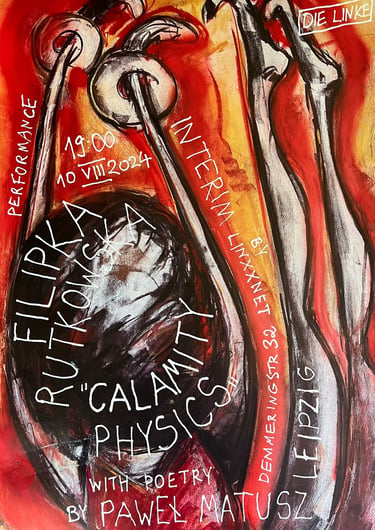

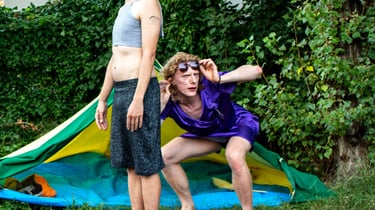
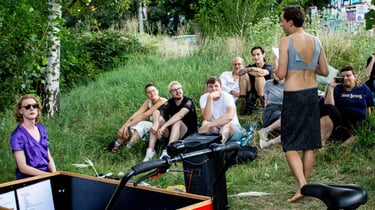
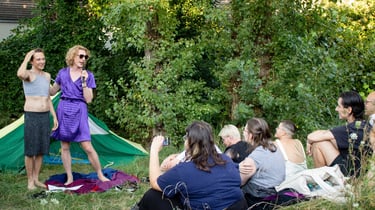
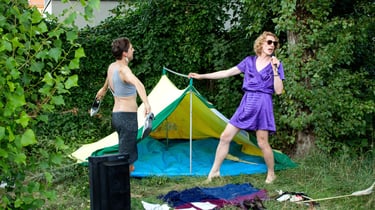
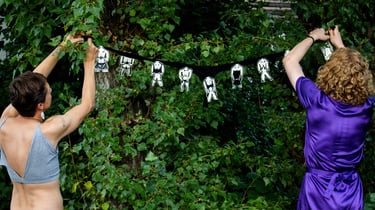
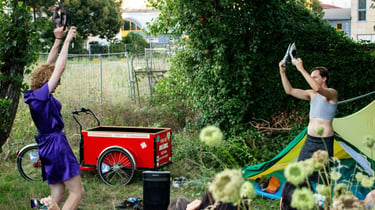






This performance, created with poet and activist Paweł Matusz, took place in a gentrification gap in Leipzig and combined poetry with personal memories from the summer of 2019. At that time, Poland’s ruling Law and Justice party had escalated its attacks on the LGBTQ+ community, sparking protests and arrests, and the artist sought respite in Germany. Together, the two reflected on their shared situation as Poles abroad, transforming experiences of oppression into joy and creative energy through art. The event was supported by Die Linke, a youth-oriented leftist political party in Germany. By revisiting that charged moment, the performance underscored the inherently political nature of queer art and its power to turn oppression into strength.
The project was supported by Cultural Department of the City of Katowice.
'Everywoman Has A Woman That Loves Her'
Ongoing Art Center
Tokyo, 2023
(with Hanayo Nakajima)
video guided tour
performance video documentation
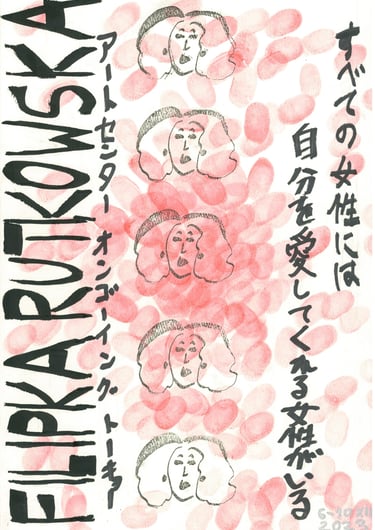


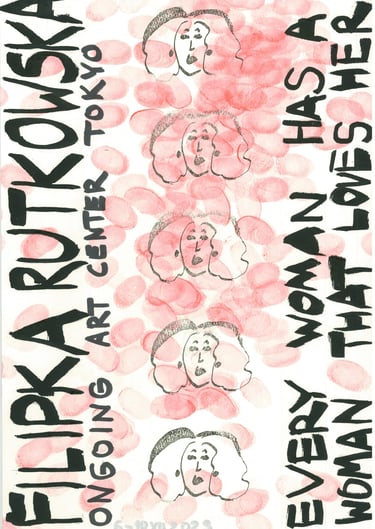
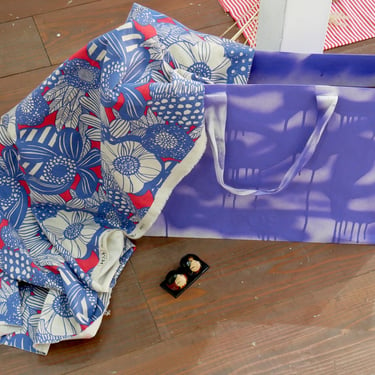
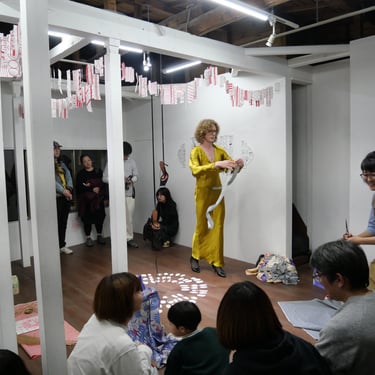
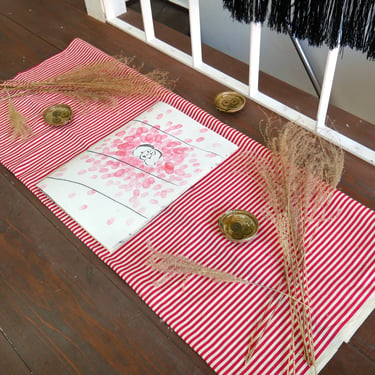
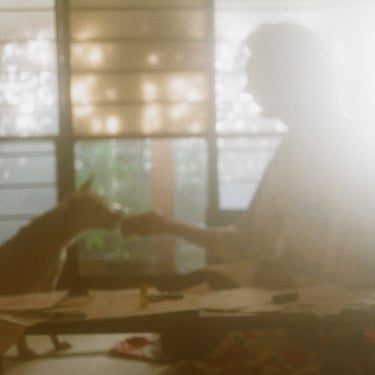
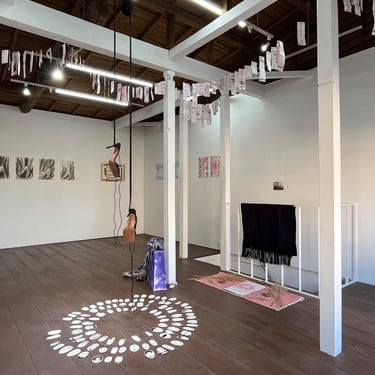
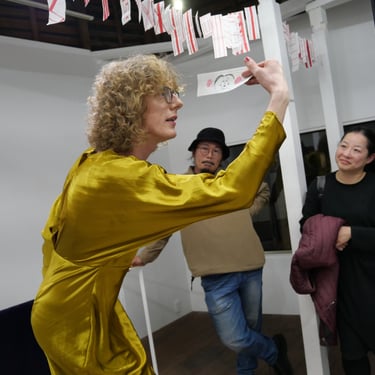
The exhibition reinterpreted femininity through a queer lens, transforming everyday objects such as high heels, shopping bags, and tights into hidden sources of knowledge. Alongside the show, the artist created small works on paper and fabric during her residency in Japan, shaping a narrative of Polish femininity observed from afar. The program also included a lecture on queer art in Poland and regular guided tours in Tokyo. The performance was supported by artist, musician, and geisha Hanayo Nakajima, who gifted the artist the kimono she had worn at her coming-of-age ceremony—an intimate gesture symbolizing Filipka’s own artistic maturity. It also incorporated the voice of a female actor from the 1980s Polish film An Immoral Story, echoing themes of return and transformation, and framing the performance as a queer rite of passage rooted in Japanese ritual culture.
The project was supported by Adam Mickieiwcz Institute in Warsaw, Cultural Department of the City of Katowice and Polish Institute in Tokyo.
'What Stays The Same After We Change II'
Pickle Bar by Slavs and Tatars
Berlin Art Week
Berlin, 2023
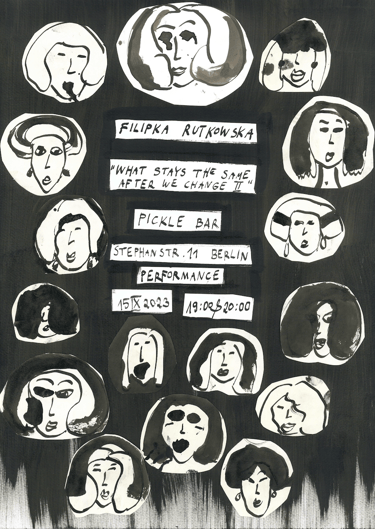

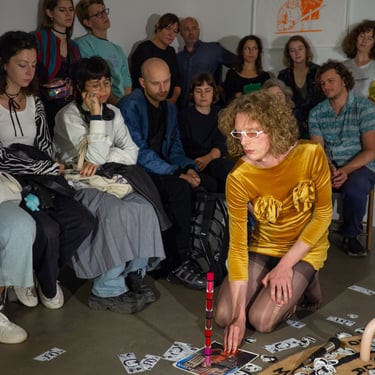
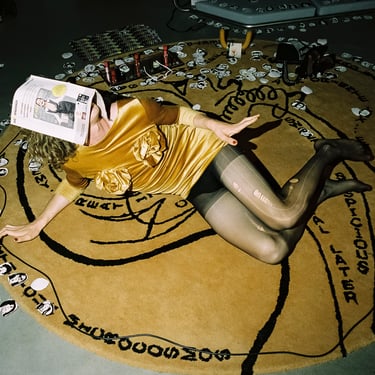

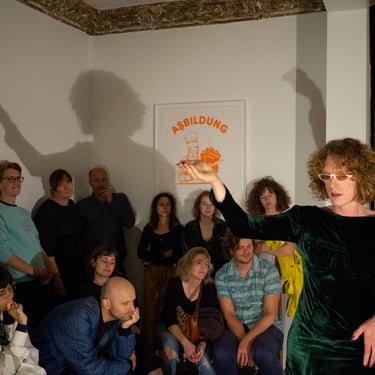
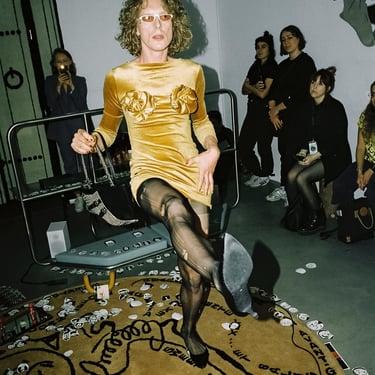
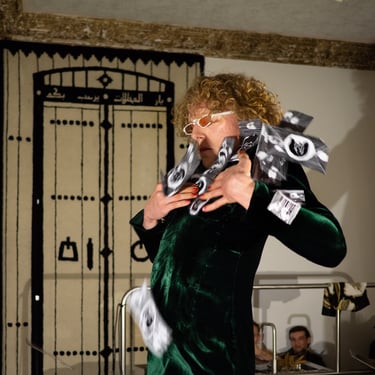
'What Stays The Same After We Change'
Foksal Gallery Foundation
Warsaw, 2022
teaser
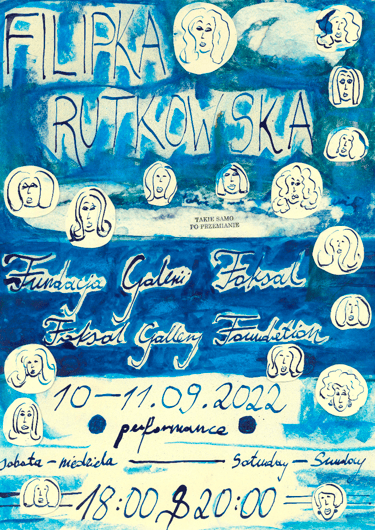

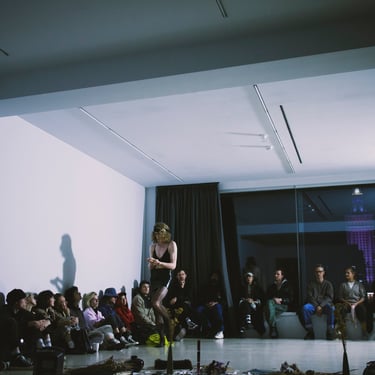
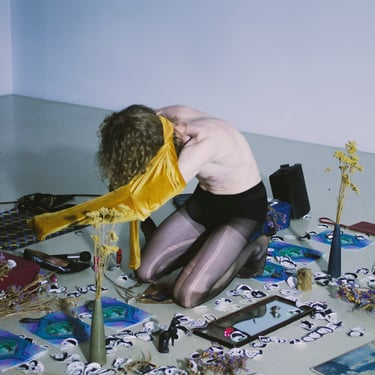
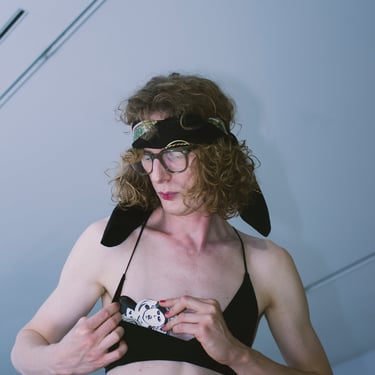
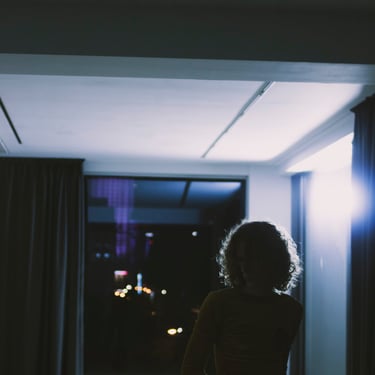
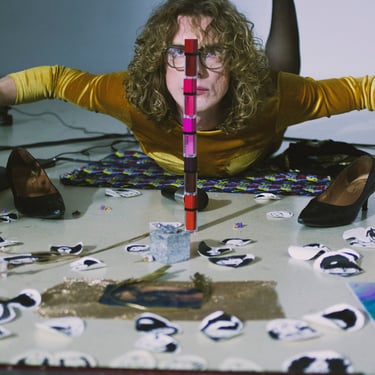
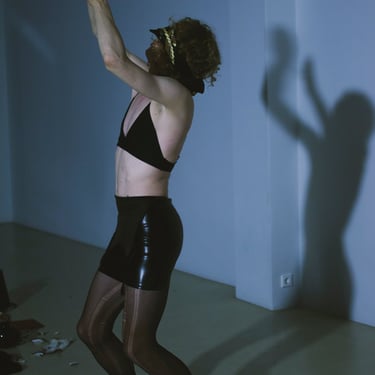
What Stays The Same After We Change is an ongoing performance that combines monodrama, ritual, stand-up comedy, and nightlife to explore transformation from a non-binary perspective. Built around drawings, personal objects, costume, and sound, it creates an immersive situation where performer, audience, and gallery space briefly merge. Each iteration reshapes the piece in dialogue with its context. The first version, at Foksal Gallery Foundation, reimagined the building’s 1960s architecture and later modernization by Roger Diener as a queer gesture of transformation. The second, presented at Pickle Bar during Berlin Art Week, engaged with the venue’s dual role as both bar and art space, emphasizing the contradictions and fluidity of such a hybrid environment.